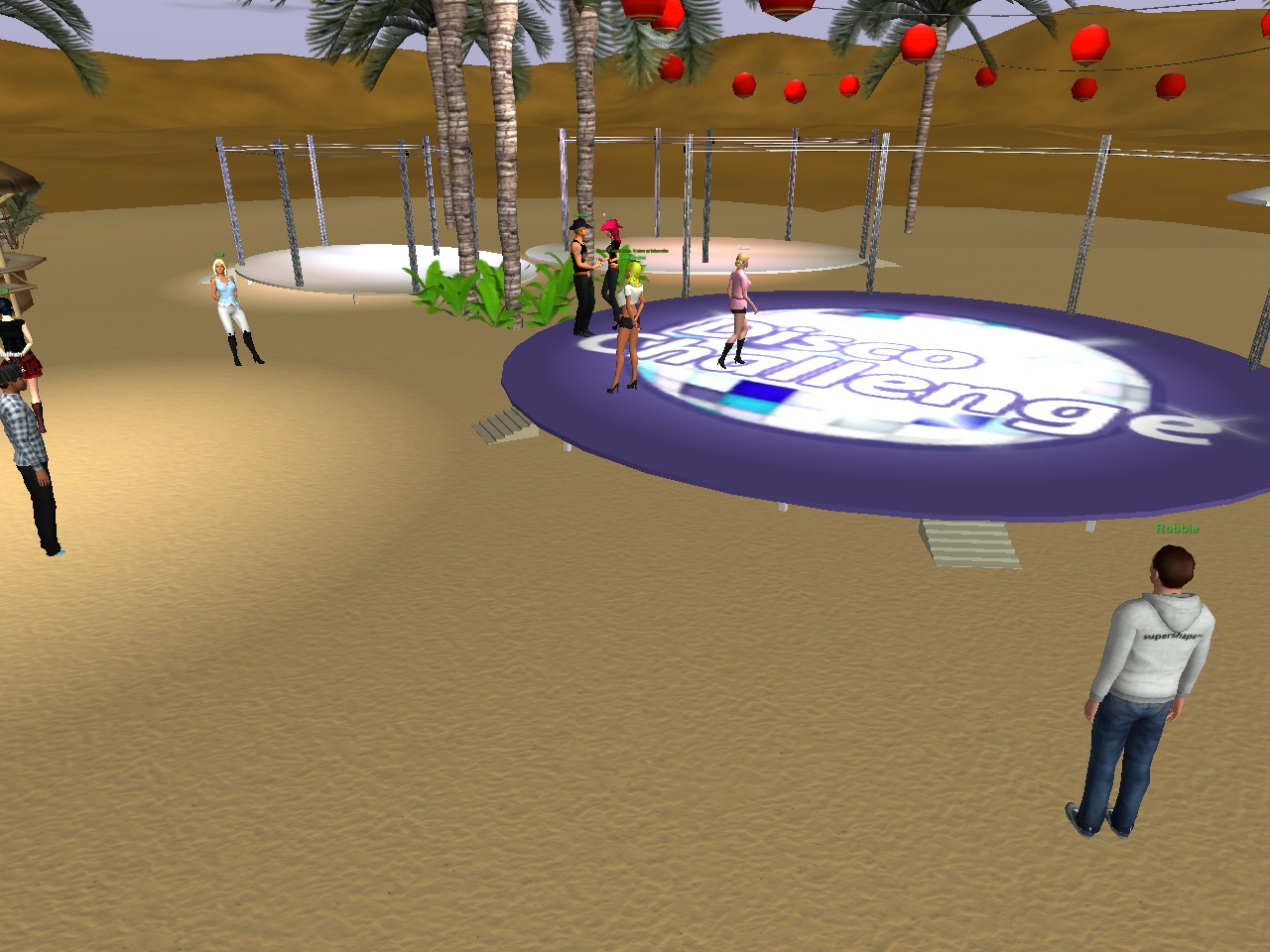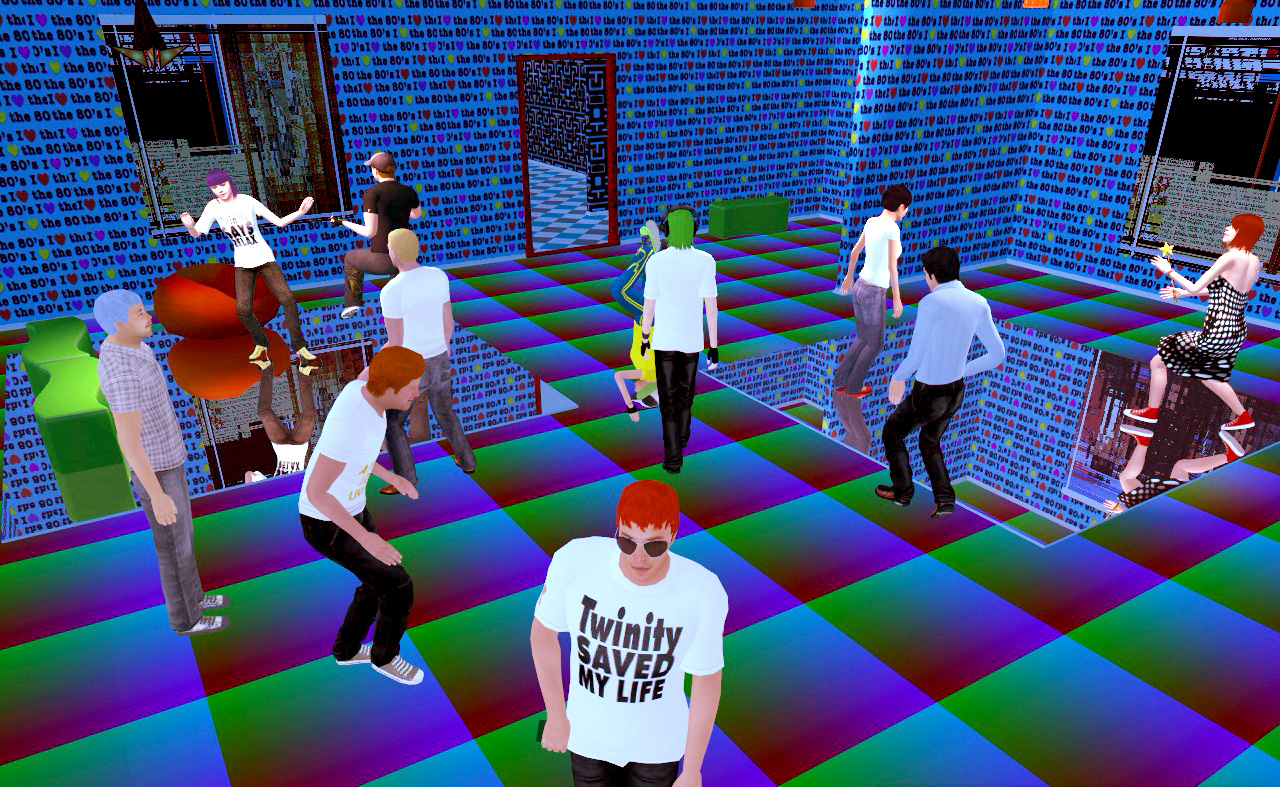
Convenience: it puts a whole bunch of people together with some digital diversions, in a place where they can interact with other people who have an interest in the same digital material. However, this means that the Users’ options are limited when it comes to interacting with the world (where “User” is Twinity jargon term referring to the real person at the keyboard).Ģ. Lightweight interface: there’s less to learn about interacting with the world than in other virtual worlds. So what would make a potential user pick Twinity over another virtual world, or choose to use it despite the mass of more accessible options available for entertainment purposes?ġ. However, only the flakiness of the system looks set to change, as the feature-set does not seem to be destined to change radically. It doesn’t sound too good so far, but to be fair the whole system is still in Beta. Twinity takes pre-existing concepts, makes a light, fluffy interface to access them, and uses what is currently a slow and buggy system to serve up the result. Like many mashups, the main justification for their existence is convenience: bringing together multiple ideas, and associating them in a useful and time-saving manner. What’s new here, if anything, and where might Twinity fit in the greater scheme of things? It’s a world of real people meeting other real people, filled with real digital content, all set against a backdrop of digital representations of real places and places that could exist in real life.

However, Twinity is no more of a mashup of the real and virtual worlds than any other virtual world.

John’s - his handshake, his elbow, his smile. The day can’t come quick enough for me to be able to say hello to you all and smile and welcome you, for whoever welcomes me , welcomes the one who sent me.“ Twinity – the virtual world that mashes up the real with the virtual world”, proclaims their website. We are Christ’s representatives here at St.

To be the first to say hello or welcome is a great responsibility, to meet and greet the stranger: to offer out the hand of friendship (or in these days the elbow of friendship) for me it’s not the handshake but the smile and the glint in the eye. John’s, but the big question is what are we welcoming people to? If it’s the building then I guess does it feel warm or cold ? It all makes a difference. If it’s the body of the church - you and I, then the same question applies are we warm or cold?Ĭhrist says whoever welcomes you welcomes me and the one who sent me. Welcome may be the first words a stranger hears when they enter St. In some contexts, a welcome is extended to a stranger , to an area or a household. The term can similarly be used to describe the feeling of being accepted on the part of the new person. Portuguese - Bem-vindo/a! Swedish - Välkommen!ĭescription A welcome is a kind of greeting designed to introduce a person to a new place or situation, and to make them feel at ease. German - Willkommen! Spanish - ¡Bienvenido/a!įrench - Bienvenue ! Italian - Benvenuto/a! So Abraham called that place ‘The Lord will provide’ as it is said to this day, ‘On the mount of the Lord it shall be provided.’ Abraham went and took the ram and offered it up as a burnt-offering instead of his son. But the angel of the Lord called to him from heaven, and said, ‘Abraham, Abraham!’ And he said, ‘Here I am.’ He said, ‘Do not lay your hand on the boy or do anything to him for now I know that you fear God, since you have not withheld your son, your only son, from me.’ And Abraham looked up and saw a ram, caught in a thicket by its horns. Then Abraham reached out his hand and took the knife to kill his son. He bound his son Isaac, and laid him on the altar, on top of the wood.

When they came to the place that God had shown him, Abraham built an altar there and laid the wood in order. Isaac said to his father Abraham, ‘Father!’ And he said, ‘Here I am, my son.’ He said, ‘The fire and the wood are here, but where is the lamb for a burnt-offering?’ Abraham said, ‘God himself will provide the lamb for a burnt-offering, my son.’ So the two of them walked on together. Then Abraham said to his young men, ‘Stay here with the donkey the boy and I will go over there we will worship, and then we will come back to you.’ Abraham took the wood of the burnt-offering and laid it on his son Isaac, and he himself carried the fire and the knife. On the third day Abraham looked up and saw the place far away. He said to him, ‘Abraham!’ And he said, ‘Here I am.’ He said, ‘Take your son, your only son Isaac, whom you love, and go to the land of Moriah, and offer him there as a burnt-offering on one of the mountains that I shall show you.’ So Abraham rose early in the morning, saddled his donkey, and took two of his young men with him, and his son Isaac he cut the wood for the burnt-offering, and set out and went to the place in the distance that God had shown him.


 0 kommentar(er)
0 kommentar(er)
